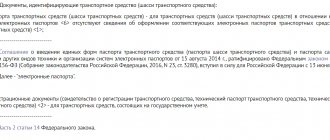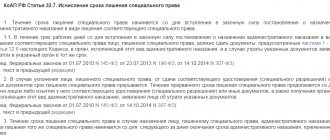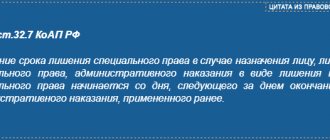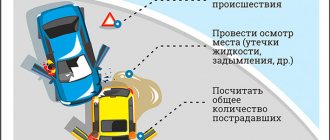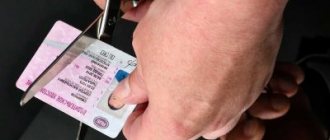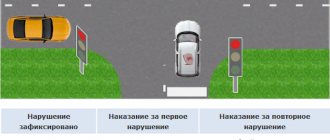Road accidents with casualties are a common occurrence in Russia. On average, from 400 to 600 car accidents occur per day, from which no one is insured. So, leaving in the morning from his own yard to work, study or on business, not a single car owner is inclined to have gloomy thoughts about accidents and few people know how to actually behave if an incident does occur.
What should be the strategy of behavior, what the culprit faces in a car accident with victims, measures of liability for different degrees of harm to health and other important questions will be answered in this article.
Initial procedure
Clauses 2.5 and 2.6 of Article 2 of the Traffic Regulations regulate the procedure for action in the event of an accident involving injured individuals. According to the provisions of the rules, the culprit is obliged to take care of the health of the injured persons by providing them with appropriate measures of assistance and calling the authorized services.
These services include:
- emergency medical care;
- police.
IMPORTANT !!! The composure and quick actions of those nearby can save lives. As statistics show, it is untimely assistance that becomes the cause of death.
Often the driver is confused and forgets the knowledge of assistance received in a driving school.
Moral damages in an accident for minor damage to health
Causing minor harm to health in an accident is considered by law as an administrative offense. Punishment for minor damage to health in an accident may occur under the first part of Article 12.24 of the Code of Administrative Offenses of the Russian Federation, subject to the following conditions:
- the actions of the car owner will indicate a violation of traffic rules or operation of the vehicle;
- the damage after the accident caused only a short-term health disorder or a minor permanent loss of ability to work.
Note! This norm of the Code of Administrative Offenses of the Russian Federation provides for the collection of a fine in the amount of 2500 to 5000 rubles to the state income, or deprivation of a driver’s license for a period of 1 to 1.5 years. Recovery of compensation for damage to health occurs through insurance payments under compulsory motor liability insurance or in court.
Even paying a fine or voluntarily surrendering a driver’s license does not exempt the at-fault driver from compensation for damage to health. The law also provides for the obligation of the car owner to fully reimburse all expenses for treatment, the purchase of medications, and rehabilitation after injuries. Do not forget that the Civil Code of the Russian Federation also provides for the possibility of compensating for moral damages in an accident if minor damage to health is confirmed.
Based on the analysis of civil legislation, compensation for harm to health will take into account the following nuances:
- if the culprit of the accident has a valid MTPL policy, the damage to health will be compensated through insurance payments;
- if the person at fault for the accident does not have a policy, or the total amount of treatment costs exceeds the maximum limit of insurance payments, recovery will be carried out in court;
- moral damages in an accident for minor injury to health can only be compensated on the basis of a judicial act, since it is not covered by the MTPL policy.
Note! If the maximum insurance benefit does not cover all treatment costs, recovery will be made only for the missing amount. In this case, the insurer will be involved in the case, and the insurance case materials will be used as evidence in the process.
How is the amount of compensation payable for minor injuries in a road accident determined? The procedure for calculation and collection will differ significantly when receiving insurance compensation under compulsory motor liability insurance, or when the victim independently goes to court.
Find out more Claim for compensation for damage from an accident
Minor harm
Just by looking at a person who has been in an accident, it is impossible to determine the degree of impact on his body. Determining the category of harm caused is carried out exclusively by professional doctors and special medical examinations.
None of the drivers can objectively assess the damage caused to their well-being, but this does not mean inaction. Many are afraid to approach, move or in any way disturb the victim, risking causing him even greater harm. And this is reasonable caution.
But we should not forget about the proportionality of harm and benefit. So, if there is a danger of a car fire, then the driver and passengers must be immediately pulled out of the car. Do this more carefully, trying not to cause harm.
Art. 12.14 of the Code of Administrative Offenses of the Russian Federation classifies a short-term disorder and inability to carry out work activities (less than 21 days) as minor harm. As a rule, these are bruises, dislocations and fractures.
Provision of Article 12. 24 of the Administrative Code provides for liability for a mild degree of severity, consisting of:
- Penalty from 2 to 5 thousand rubles.
- Or deprivation of the special prerogative to drive a car for a period of one to 1.5 years.
Lawyer Ivlev
In accordance with Part 1 of Article 12.24. of the Code of Administrative Offenses of the Russian Federation, violation of the Traffic Rules or the rules of operation of a vehicle, resulting in minor harm to the health of the victim, entails the imposition of an administrative fine in the amount of one thousand to one thousand five hundred rubles or deprivation of the right to drive vehicles for a period of one to one and a half years.
Part 2 of this article states that violation of the Traffic Rules or the rules of operation of a vehicle, resulting in the infliction of moderate harm to the health of the victim, entails the imposition of an administrative fine in the amount of two thousand to two thousand five hundred rubles or deprivation of the right to drive vehicles for a period from one and a half to two years.
In the overwhelming majority, for the vehicle manager the situation is very complex and difficult to prove. The court takes the side of the pedestrian based on the fact that the driver controls a source of increased danger. In this regard, it is necessary to approach the issue under consideration objectively and evaluate the actions of each participant; pedestrians are not always right, and for some this is also a way of making money.
The consequences of causing harm to human health in an accident are the most unfavorable. The owner of the car will have to restore the car at his own expense plus deprivation of the right to drive a vehicle, but this is only if at the trial the victim does not take pity and does not ask for a fine to be applied against you. If you think that this will all end, then I dare to disappoint you very much.
In accordance with Article 1079 of the Civil Code of the Russian Federation, legal entities and citizens whose activities are associated with an increased danger to others (use of vehicles, mechanisms) are obliged to compensate for damage caused by a source of increased danger, unless they prove that the damage arose as a result of force majeure or the intent of the victim . Thus, the victim has the right to demand compensation for moral damage. In this case, the amount of compensation is determined based on the degree of harm caused. A reasonable amount must be declared.
The best way for the guilty person would be to agree with the victim regarding payment and not bring the case to court; in this regard, you can agree on a smaller amount. These situations are only possible in cases of minor or moderate harm to health.
Serious harm to health will be considered within the framework of the Criminal Code of the Russian Federation, Part 1 of Article 264. Violation by a person driving a car, tram or other mechanical vehicle of traffic rules or operation of vehicles, resulting through negligence in causing grave harm to human health, is punishable by restriction of freedom for a term up to five years, or arrest for a term of three to six months, or imprisonment for a term of up to two years with or without deprivation of the right to drive a vehicle for a term of up to three years.
Medium severity
Moderate impact is characterized by:
- more prolonged illness (more than 21 days);
- the ability to fulfill labor obligations is reduced by a third;
- there is no threat to life.
However, at the scene of an incident, a lay person cannot determine the real state of health of the victim; initially it is necessary to eliminate life-threatening factors:
- in case of loss of consciousness, but the presence of even breathing and heartbeat, it is necessary to bring the person to his senses;
- if there is no breathing, perform artificial ventilation;
- if there is no heartbeat, then indirect cardiac massage is added to artificial respiration.
ATTENTION !!! Correctly provided assistance can prevent a person from dying, and, therefore, the punishment for the person responsible for the accident will be milder and there will probably not be criminal prosecution.
The disassembly procedure for moderate severity includes the following steps:
- Establishing the cause and consequences of the injuries received and the incident.
- Fixing the damage category.
- A conclusion is made about the start of administrative or criminal proceedings in the case.
According to Part 2 of Art. 12.24 of the Code of Administrative Offenses may appoint:
- fine from 10 to 25 thousand;
- elimination of the prerogative of driving from one and a half to two years.
Punishment for causing damage to physical condition
There are 3 types of liability for the driver of a car who is at fault in a traffic accident. Liability is directly related to the consequences of the accident for the victim.
- Civil liability in case of an accident involves damage to the car and consists of payment of property and monetary damage.
- Administrative liability may occur in case of an accident with damage to the car and in case of harm to the health of the victim (mild and moderate severity). Consists of monetary compensation and deprivation of a driver’s license for an appropriate period.
- Criminal liability in a traffic accident involves causing serious harm to health or death. In this case, the person responsible for the accident faces imprisonment.
It must be remembered that criminal and administrative liability imply the fault of the driver of the car, and civil liability for the rehabilitation of the victim also applies to the person driving the vehicle who was not guilty of the accident. Therefore, if your car is accidentally hit by an inattentive pedestrian, and it is not your fault, then by law you will have to finance his treatment and other medical expenses. This is stated in Article 1079 of the Civil Code of the Russian Federation.
The basis for punishing the culprit who caused minor harm to health is part 1 of Art. 12.24 Code of Administrative Offenses of the Russian Federation.
The basis for punishing a driver who subjected a victim to moderate health deterioration is part 2 of Art. 12.24 Code of Administrative Offenses of the Russian Federation.
The basis for the entry into force of punishment for the guilty driver in an accident involving serious damage to human health is part 1 and part 2 of Art. 264 of the Criminal Code of the Russian Federation, and in case of causing grievous damage through negligence - parts 3 - parts 6 of Art. 264 of the Criminal Code of the Russian Federation.
- The punishment for causing minor damage to health to the driver at fault in an accident may be a fine of 2,500 to 5,000 rubles or deprivation of a driver’s license from one to one and a half years.
- The culprit of an accident in the event of an accident with moderate damage to the health of the victim pays a fine of 10,000 to 25,000 rubles or is deprived of the right to drive a vehicle for a period of one and a half to two years.
- The perpetrator of an accident causing grievous bodily harm faces imprisonment for up to two years and deprivation of a driver’s license for up to three years. This is if the driver was sober. And if the driver is intoxicated, he faces imprisonment for up to four years. The maximum sentence is 15 years in prison if the accident occurred due to malicious intent.
Criminal prosecution
The punishment provided for by the Criminal Code of the Russian Federation occurs only when serious harm to the health of the victim is caused.
Regulated by Article 264 of the Code:
| Act | If there are no aggravating | When intoxicated |
| Heavy damage to health | Restriction of freedom for up to 3 years, imprisonment for up to 2 years, deprivation of privileges to drive a vehicle for up to a couple of years | Forced labor and deprivation of driving privileges for up to 3 years, arrest for up to 4 years |
| Leading to death | Forced labor for up to 4 years with liquidation of the right to drive for up to 3 years, imprisonment for up to five years | Imprisonment from 2 to 5 years with deprivation of the right to drive for up to 3 years |
| Death of two or more people | Forced labor up to 5 years, arrest up to 7 years | Prison term from 4 to 9 years |
Commentary on Article 12.24 of the Code of Administrative Offenses of the Russian Federation
1. The object of this offense is road safety, life and health of citizens.
2. The classification of an offense under this article is carried out if the violation of the Traffic Rules resulted in harm to the health of the victim.
Causing minor harm to health should be understood as a short-term health disorder or a minor permanent loss of general ability to work from six to twenty-one days. If a violation of the rules for operating a vehicle entails consequences in the form of causing serious harm to human health, then the actions are qualified under Art. 264 of the Criminal Code.
Infliction of moderate harm to health should be understood as a non-life-threatening long-term health disorder or a significant permanent loss of general ability to work by less than one third.
3. The subjective side of the offense is characterized by guilt in the form of intent and negligence.
4. The subject of this offense is the driver of the vehicle.
Mitigating and aggravating circumstances
Extenuating grounds are provided for administrative liability, or, to be more precise, factors contributing to the closure of the case (Article 24.5 of the Administrative Code):
- The driver committed an action due to force majeure.
- The recruitment period has expired.
- An investigation is underway on other charges.
It is possible to avoid sanctions under the provisions of Article 1079 of the Civil Code of the Russian Federation in the presence of a pedestrian citizen. If it is possible to justify the circumstance in which the victim himself desired such an outcome.
Parts 2, 3 of Article 1083 of the Civil Code stipulate some measures to help reduce the impact:
- A grossly and carelessly injured person independently increased the amount of damage;
- no fault of the driver, completely absent (a pedestrian, talking on the phone, entered an area invisible to the vehicle);
- the court takes into account the characteristics of the perpetrator, the presence of children and their number, the financial security of the family (sole breadwinner), the presence of dependents and other points.
Liability under Article 264 of the Criminal Code of the Russian Federation
Article 264 of the Criminal Code of the Russian Federation provides for criminal liability of a person for violating traffic rules and operating vehicles. In this article, vehicles mean:
- cars
- trams
- other motor vehicles
- trolleybuses
- tractors
- other self-propelled vehicles
- motorcycles
- other motor vehicles
To bring a person to criminal liability under Article 264 of the Criminal Code of the Russian Federation, it is necessary to establish the objective side of the crime:
- The person violated traffic rules (traffic regulations) or the rules of operation of the above vehicles.
- Traffic rules as well as operating rules for the above vehicles exist, are approved by the appropriate department, are publicly available, and the person who is the subject of the crime knew or should have known about such rules.
According to Article 264 of the Criminal Code of the Russian Federation, criminal liability accrues to a person who has violated the rules of the road and the operation of vehicles in the event of:
- causing serious harm to human health (Part 1, Part 2 of Article 264 of the Criminal Code of the Russian Federation)
- resulting in the death of a person (Part 3, Part 4 of Article 264 of the Criminal Code of the Russian Federation)
- resulting in the death of two or more persons (Part 5, Part 6 of Article 264 of the Criminal Code of the Russian Federation)
As can be seen from Part 1 and Part 2 of Article 264 of the Criminal Code of the Russian Federation, criminal liability arises in the case of causing serious harm to health, and in the case of causing light or moderate harm, this issue relates to civil law.
The subjective side of the crime involves the person’s carelessness in relation to the consequences. In the case of intentional infliction, the act is subject to classification under articles on crimes against the person and/or property.
As practice shows, there are cases of guilt of the victim whose actions led to adverse consequences. These could be: crossing the street in the wrong place, unexpectedly appearing in front of a vehicle, etc. The presence of guilt of the victim does not exclude the guilt of the driver of the vehicle, if the driver has signs of a crime under Article 264 of the Criminal Code of the Russian Federation.
Article 264. Violation of traffic rules and operation of vehicles
- Violation by a person driving a car, tram or other mechanical vehicle of the rules of the road or the operation of vehicles, resulting through negligence in causing serious harm to human health, is punishable by restriction of freedom for a term of up to three years, or by forced labor for a term of up to two years with imprisonment. the right to drive a vehicle for a term of up to three years or without it, or arrest for a term of up to six months, or imprisonment for a term of up to two years with deprivation of the right to drive a vehicle for a term of up to three years or without it.
- An act provided for in the first part of this article, committed by a person in a state of intoxication, resulting through negligence in causing grievous harm to human health, is punishable by forced labor for up to three years with deprivation of the right to drive a vehicle for up to three years or imprisonment for a term of up to three years. up to four years with deprivation of the right to drive a vehicle for up to three years.
- An act provided for in the first part of this article, resulting in the death of a person through negligence, is punishable by forced labor for a term of up to four years with deprivation of the right to drive a vehicle for a term of up to three years, or imprisonment for a term of up to five years with deprivation of the right to drive a vehicle for a term of up to three years.
- An act provided for in the first part of this article, committed by a person in a state of intoxication, resulting in the death of a person through negligence, is punishable by imprisonment for a term of up to seven years with deprivation of the right to drive a vehicle for a term of up to three years.
- An act provided for in the first part of this article, resulting through negligence in the death of two or more persons, is punishable by forced labor for a term of up to five years with deprivation of the right to drive a vehicle for a term of up to three years, or imprisonment for a term of up to seven years with deprivation of the right to drive a vehicle. remedy for up to three years.
- An act provided for in the first part of this article, committed by a person in a state of intoxication, resulting in the death of two or more persons through negligence, is punishable by forced labor for a term of up to five years with deprivation of the right to drive a vehicle for a term of up to three years or imprisonment for a term of up to nine years with deprivation of the right to drive a vehicle for up to three years.
- Note. In this article, other mechanical vehicles mean trolleybuses, as well as tractors and other self-propelled vehicles, motorcycles and other mechanical vehicles.
0 0 vote
Article rating
Our lawyers know the answer to your question
Free legal advice by phone: in Moscow and the Moscow region, in St. Petersburg, as well as throughout Russia
Circumstances aggravating the position of the guilty person apply exclusively to punishments under the Criminal Code and must be taken into account in any case:
- Driving while intoxicated or intoxicated.
- Leaving the victim in danger or leaving the scene.
- Recidivism of a criminal act.
- Constant and systematic failure to comply with traffic rules (traffic rules).
- Vigorous resistance and obstruction of the investigation.
To reduce the upcoming punishment, you should use all possible methods:
- assistance in carrying out investigative activities;
- admission of guilt, repentance for what happened;
- conciliatory actions with the victim or relatives of the deceased;
- financial compensation on a voluntary basis;
- not leaving you in danger - providing first aid.
IMPORTANT !!! Is it possible to reach an agreement without going to court? Reconciliation of the parties is possible, as a rule, in cases of light or moderate harm with financial compensation from the culprit. It is very rare that the parties peacefully resolve a conflict in the presence of dead people.
Serious harm to health in an accident due to negligence
There are many cases of serious injury caused in a traffic accident due to negligence. Fatal situations move from the category of serious damage to health to the category of causing death by negligence. And this case is already being conducted under the criminal code, and not under the civil code. It is impossible to avoid punishment for such an offense, because a fatal outcome in an accident means the end of a person’s existence, and, unfortunately, there are more and more such cases.
If the driver caused serious injury through negligence, he will receive no less severe punishment. For parts 3 – 6 art. 264 of the Criminal Code of the Russian Federation, the culprit will face the following punishment:
- death of one person in an accident - imprisonment for up to five years;
- the death of one person due to the fault of a drunk driver - imprisonment for up to seven years and deprivation of the right to drive a vehicle for up to three years;
- if two or more people died - imprisonment for up to seven years;
- in the event of the death of two or more people due to the negligence of a drunk driver - imprisonment for up to nine years, deprivation of a driver's license for up to three years and the inability to hold certain positions or the inability to conduct professional activities for up to three years.
Investigation process, duration of activities
After clarifying the circumstances of the incident, the necessary examinations are carried out. The results obtained are attached to the case, all documentation is transferred to the judicial authority for a final verdict on the culprit.
The degree of damage caused to the victim’s health is of decisive importance in determining the measure of impact.
Punishment may be applied if:
- The category of harm was determined based on the results of a forensic medical examination.
- It was possible to establish and prove the connection between the injuries received and the car accident.
- The intruder has been identified.
The time frame for consideration of a case ranges from 2 to 6 months, which consists of:
- investigation period – up to 60 days;
- extension of the investigation to six months if there is a lack of information collected or the victim’s condition is unstable;
- The duration of consideration in court is no more than 2 months.
Degree of severity of harm to health
Punishments are provided for causing the following harm to the health of the victim:
1. Minor harm to the victim’s health - a short-term health disorder or a minor permanent loss of general ability to work.
2. Harm to the health of the victim of moderate severity - a non-life-threatening long-term health disorder or a significant permanent loss of general ability to work by less than one third.
3. Serious harm to the victim's health:
- harm dangerous to human life;
- loss of vision, speech, hearing or any organ or loss of organ functions;
- abortion;
- mental disorder;
- drug addiction or substance abuse;
- permanent facial disfigurement;
- significant permanent loss of general ability to work by at least one third;
- complete loss of professional ability to work.
4. Death of the victim.
Getting insurance
Restoring, purchasing medicines, and putting the car into working condition will require considerable expenses from the victim. Therefore, resolving the issue of how to obtain insurance for a victim of an accident is relevant.
You should immediately count on your own investments, since the applicant will be able to receive compensation from the insurer only after the completion of the legal proceedings, having in hand a ruling on the proven guilt of the person who caused the harm.
The insurance company will reimburse expenses related to:
- Personal injury or death of an individual.
- The inability to carry out work activities and the loss of profit incurred in connection with this.
- Recovery and rehabilitation.
- Mastering new knowledge, since you can no longer work in your old profession.
- Funeral costs.
- Loss of a breadwinner (providing for his family).
The amount of compensation will vary. Its value is determined by the period of signing the insurance agreement:
- from October 2014 – no more than 160 thousand;
- from April 2015 – maximum 500 thousand.
Often the insurance funds paid are not enough to cover the expenses incurred. In this case, the individual has the right to go to court to demand the return of funds from the culprit of the incident.
How is the severity of injury to health determined in a road accident?
The severity of injuries received by a person in an accident is determined by conducting a forensic medical examination. The following factors are taken into account during the survey:
- the impact of the injuries received on the life, health and ability to work of the victim;
- duration of the painful condition;
- loss of any organ or cessation of its functioning;
- abortion;
- permanent facial disfigurement, etc.
The severity of the harm to health is documented.
A complete list of criteria is given in Order of the Ministry of Health and Social Development of the Russian Federation dated April 24, 2008 No. 194-n. The combination of certain signs forms the severity of harm to health. This classification helps to fairly punish the perpetrator and help the victim.
The results of the examination will be known within a month after the accident.
If, after an accident, a citizen received minor or moderate bodily injuries, the culprit is held accountable under Art. 12.24 Code of Administrative Offenses of the Russian Federation.
Required Documentation
The standard list of documents provided to the company includes:
- Passport.
- Driver's license.
- Information about car registration.
- Papers about technical inspection and good condition of the car.
- Certificate from the traffic police.
- A duplicate of the protocol with the signatures of the participants.
- Power of attorney when driving by a trusted person.
Such a list of papers is submitted along with the application if only vehicles are affected.
If there are victims, the following are added to those already mentioned:
- A medical report provided from the institution where the individual was treated, indicating injuries and disfigurements;
- sheet of temporary inability to work;
- for inpatient recovery - an extract from the medical history;
- payment documentation confirming expenses - checks, receipts, bank transfers;
- When receiving disability, an appropriate medical opinion will be required.
If the applicant has submitted an incomplete list, he is notified of this. And he has the right to apply again.
An application for compensation must be submitted to the organization in which the person responsible for the incident is insured.
Who compensates for minor health damage in an accident?
There is a procedure established by law for collecting compensation for damage to health in an accident. Therefore, the obligation to pay can be assigned to:
- the at-fault party's insurance company;
- the offender himself;
- the victim's employer (if the person was injured in an accident while performing his job duties).
The amount of maximum compensation for damage to health in case of an accident under the MTPL policy is limited to 500 thousand rubles. Transfer of funds is made after the victims present to the insurance company a medical report and documents confirming the incident.
If the insurance compensation is not enough, the remaining amount can be demanded from the person at fault for the accident.

